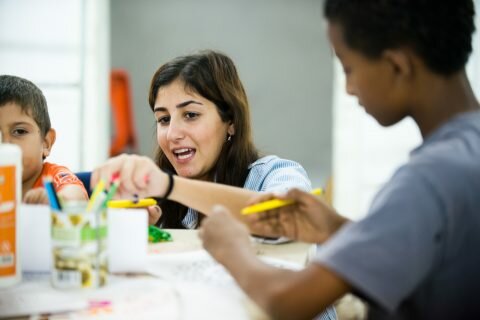Student Life

Volunteer Opportunities
Volunteering
For information about the opportunity to conduct for-credit research during your time at BGU, click here.
Volunteering is a big part of student life at BGU with approximately 2/3 of the full-degree students partaking in some kind of community engagement activity. OSP students are highly encouraged and easily able to volunteer in addition to their normal course load. While program participants will learn more about the options available to them during orientation on-site in Beer-Sheva, past students have gotten involved with some of the following:
- Teaching English
- Tutoring kids at local schools
- Working with the elderly
- Working with the local Bedouin population
- Local environmental organizations
Some examples of the many programs and projects that are being carried out at BGU by the faculty, staff, and students:
- Kidma (“Progress”): helps new immigrants during the early, most challenging stages of their absorption in Israel by teaching them basic subjects such as Hebrew, mathematics, English, and computers. It also helps the new immigrants learn about Israeli society and culture by teaching them about civics and current affairs, celebrating the Jewish holidays, and exploring the country.
- BiShvil Ha’Da’at (The Knowledge Trail): A Study Program for People with Special Needs: an educational program for people with a broad spectrum of special needs that teaches introductory courses in medicine and economics and management to people with intellectual disabilities, people coping with rehabilitation, high-functioning autistic adults, and people with cerebral palsy. The courses are taught by BGU students who are pursuing these academic disciplines.
- The Program for Economics and Social Development in the Negev: senior year business and management students in the Department of Management at the Guilford Glazer Faculty of Business and Management work with local Negev businesses preparing business plans, devising strategies, defining goals and objectives, and establishing marketing programs. Many of the businesses are owned or operated by special population groups (i.e. Bedouins, women, new immigrants, etc.) who are more likely to be disadvantaged for a variety of reasons.
